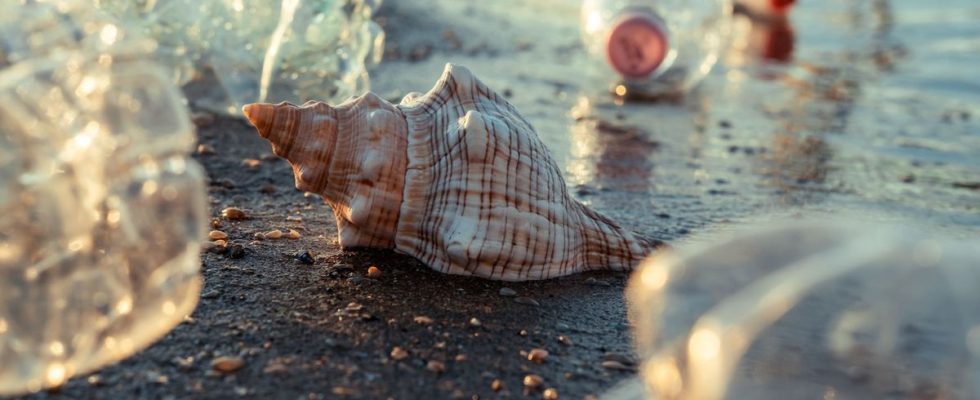Published on
Updated
Reading 3 min.
The third meeting of the intergovernmental negotiating committee, for a global agreement to end plastic pollution, took place from November 13 to 19, 2023, in Nairobi, Kenya. An entire week of negotiations which unfortunately did not result in the expected consensus, deplore the NGOs.
“One of the most important environmental agreements in history“. It is in these terms that the international collective “Break Free From Plastic” describes the creation of a legally binding international treaty that aims to combat plastic pollution on a global scale. From November 13 to 19, 2023, 175 countries from around the world gathered in Nairobi, Kenya, for the third session of intergovernmental negotiation (INC-3). In line with the request of the United Nations Environment Assembly, the treaty envisages covering the entire life cycle of plastic. This implies tackling not only existing pollution, but also to the management of plastic at all stages, from its production to its elimination, including its use and reuse.
A treaty that misses the main objectives?
This ambitious treaty includes several flagship measures, including “a reduction in plastic production, encourage and promote reuse and avoid any substitution towards false solutions, such as bioplastic, chemical recycling or even a massive shift towards paper or cardboard“, summarizes Diane Beaumenay-Joannet, aquatic waste advocacy officer for Surfrider Foundation Europe, contacted by ETX Daily Up. Initial objective: to produce a final version in November 2024. But this deadline could be postponed.
In a press release published on the evening of Sunday, November 19, the Break Free From Plastic collective deplores the culmination of a week which misses its main objectives. “After seven days of negotiations, INC-3 missed the opportunity to lay the groundwork for ambitious intersessional work on any priority, including the development of targets and timetables for an overall reduction in the plastic production, as well as strict mechanisms to monitor compliance with an overall reduction target“.
The Center for International Environmental Law (CIEL), also involved in the fight against plastic pollution, reaches roughly the same verdict: “Governments that began the week with a “Zero Draft” of the treaty text and a clear mandate to agree to an active intersessional work program, left eight days later with a “Revised Zero Draft” that swelled to more than 100 pages, with no intersessional agenda, and a clear warning that entertaining endless debate by those who want to block progress at every turn is a recipe for inertia and ultimate disaster“, analyzes the NGO in a press release.
“Things move at a unique speed when it comes to plastic”
One of the essential questions concerned the establishment of intersessional working groups, in order to move forward on the key points and the main lines of the future treaty. A thorny point, given the strong opposition from certain countries at this stage of the negotiations. “We have a certain number of countries such as Iran, India, Russia and Saudi Arabia which consider, for example, that the reduction in plastic production should have no place in the treaty or that we should introduce measures on a voluntary basis, that is to say the least restrictive possible“, explains to ETX Daily Up David Azoulay, program director for environmental health for the Center for International Environmental Law (CIEL), present during the Nairobi negotiations.
The progress of the negotiations had already been obstructed by these same countries during the previous session which took place at the end of May 2023 in Paris. The next negotiations will take place in April 2024 in Ottawa, Canada. Until then, one of the main challenges lies in finding a consensus between the countries which declare themselves in favor of all the key points of the Treaty and the countries which are opposed to them. “We must adopt a paradigm shift and rethink our mode of consumption by moving away from the pattern produce-consume-throw away. Which implies a very significant societal change and therefore inevitably raises strong resistance from the lobbies of the fossil and petrochemical industries!“, underlines Diane Beaumenay-Joannet.
David Azoulay, however, remains optimistic: “There is a very significant desire for action on the part of a large majority of countries, which weakens the opposition. And even if they act forcefully to block procedures and delay progress, the game is not yet over. There is still a year of negotiations left which will allow us to see to what extent the ambitious countries on these measures are ready to fight“. Before adding: “We see things moving at a unique speed when it concerns plastic. There is clear interest from all stakeholders, including the general public. We are all aware that this material is omnipresent in our daily lives and that it pollutes, which creates a new and particular focus. This is also felt at the media level. During the Paris phase, which was still an austere and very technical part, we had never seen so many major media interested in the question”.
